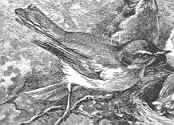If John Gay (1685-1732) had had to produce The Beggars' Opera under today's copyright rules, would he have found it possible? Gay, and his musical editor Johann Christoph Pepusch (1667-1752), did not write a single one of the 69 melodies that were used in the play. Here is a back-of-the-envelope computation of what it might cost in clearance fees to licence the melodies if today's copyright rules had been in force in 1728.
Of the 69 airs in John Gay's The Beggars' Opera, 18 have been attributed by the musicologist W.H. Grattan Flood ("The Beggars' Opera and its composers, Music and Letters, 3(4), 402-406, October 1922.) to nine known composers. Of these nine, 7 were still alive in 1728 when The Beggars Opera was first performed. The two who were already dead, Henry Purcell (died 1695) and Jeremiah Clarke (died 1707) had been dead for less than 50 years. Under a life-plus-50 or life-plus-70 rule, then all 18 of the airs by known composers would have been under copyright in 1728.
Here are the composers with the airs attributed to them by W. H. Grattan Flood
| Composer | Year of death | Airs in The Beggars' Opera |
| John Barrett | 1735 | #30, #55, #58 |
| Giovanni Batista Bononcini | 1747 | #4 |
| Henry Carey | 1743 | #34, #59 |
| Jeremiah Clarke | 1707 | #2, #51, #66 |
| John Eccles | 1735 | #11 |
| G. F. Handel | 1759 | #20, #28 |
| Richard Leveridge | 1758 | #15 |
| Jean Joseph Mouret | 1738 | #22 |
| Henry Purcell | 1695 | #6, #31, #41, #60 |
What would it have cost to license these songs today? Licensing the dramatic performance of a melody comes under the heading of so-called "dramatic performance rights" in the music business. I was unable to find quotes of typical licensing fees for dramatic performances of music. (Leave a message in the comments if you know of an appropriate figure.) However, to license a melody for background music in a medium-budget television soap opera costs around a thousand dollars. [1][2], though it can be lower or higher. This is for background music not for use as a song-tune. One of the web-sites linked above points out that
Due to the more extensive production aspects and higher aesthetic value placed on songs compared to instrumental music, special licensing rates apply. Song licensing is determined on a per project basis according to production budgets and venues of distribution.In the case of The Beggars' Opera Gay would need to license each melody as a song-tune for which new words were to be written. These fees might run much higher than the 1000.00 figure we have found.
Proceeding anyhow with the $1000.00 figure since it is the only one we have, we get a clearance fee of $18,000.00 for the 18 melodies.
The computation so far assumes that only the 18 airs attributed to known composers would need to be licensed. Yet it is possible that most of the 69 melodies used in the Beggars' Opera were recent enough to have been under copyright by today's rules. Only a few, such as Packington's Pound (Air #43)and Greensleeves (Air #67) can be traced to the late 16th or early 17th century. And even in the case of these two airs, the version used by Gay was not necessarily the oldest version of the air. Hence the $18000.00 figure may be, if anything, an under-estimate.
By any computation under today's rules, then, John Gay would have had to spend a tidy sum in clearance fees before a single actor or musician was hired or a single costume was sewn. While the $18,000.00 sum computed above is small compared to the multimillion-dollar budget of a major broadway production, it is equal to "the average total production budged for an Off-Off Broadway show" [3], and would not be a trivial line-item in the budget of a half-million dollar Off-Broadway show [4]. Were Gay working under today's rules, he might well have found the creation of The Beggars' Opera cost-prohibitive due to copyright clearance fees alone.


No comments:
Post a Comment